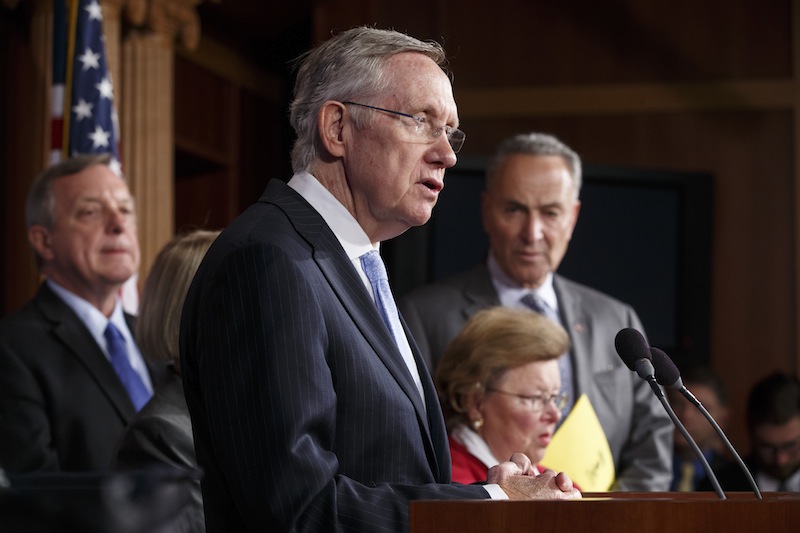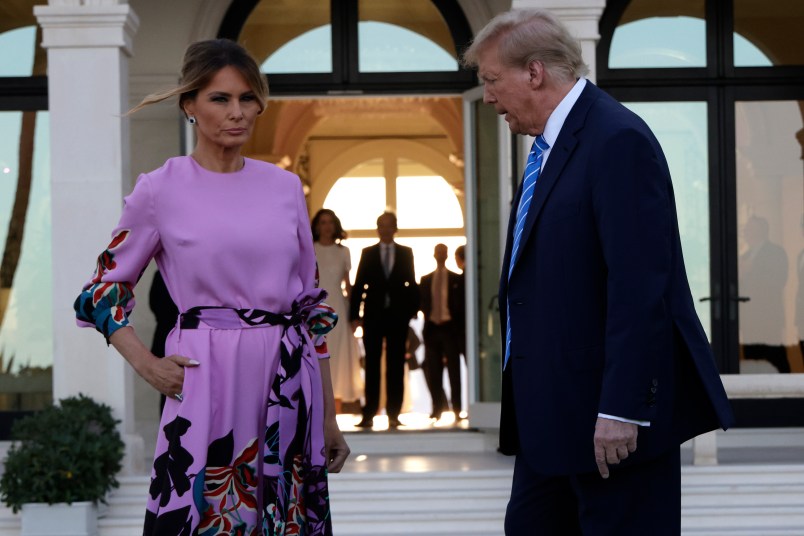WASHINGTON (AP) — Senate Democrats signaled a possible retreat Tuesday over the biggest sticking point blocking congressional passage of legislation authorizing sanctions on Russia and providing much-needed aid to Ukraine.
If agreed to by rank-and-file Democrats, the move would clear the way for Congress to issue its first significant response since Russian President Vladimir Putin’s military intervention in the Crimean peninsula.
Up to now, the Senate and House have been at odds over a provision related to the International Monetary Fund. But legislative aides told The Associated Press that Democrats would weigh dropping language related to the IMF in the interests of securing passage of a bill.
The aides weren’t authorized to speak publicly on the matter and demanded anonymity.
Just Monday, Senate Majority Leader Harry Reid launched a surprisingly stinging attack on Republicans who blocked the bill from passing before Congress’ one-week recess started on March 14. He suggested GOP “extremists” even helped Russia’s annexation of Crimea, saying it was “impossible to know whether events would have unfolded differently if the United States had responded to Russian aggression with a strong, unified voice.”
Senate Republican leader Mitch McConnell fired back Tuesday, accusing Reid of trying to destroy the widespread bipartisan support for providing Ukraine with aid and hitting Putin’s government with sanctions.
On Reid’s claim that Republicans were somehow responsible for Russia’s invasion of Crimea, McConnell said: “Who writes this stuff? It’s not just completely unhelpful. It also injects hyper-partisanship into the process at a time when we should be working together.”
The Senate on Monday advanced its legislation in an overwhelming 78-17 procedural vote. But House Republicans repeated their opposition to language enhancing the lending capacity of the IMF. And its Foreign Affairs Committee passed its own Ukraine aid bill on Tuesday, without any reference to the international lending body.
At issue are changes that would increase the power of emerging countries in the IMF and shift some $63 billion from a crisis fund to a general account the lending body can use for economic stabilization operations around the world.
Republicans have long spurned the administration’s attempt to ratify the IMF revisions, saying they would increase the exposure of U.S. taxpayers in foreign bailouts. Making the shift now, opponents argue, also would marginally increase Russia’s voting power over the fund’s finances.
The Obama administration and Democrats counter that unless the U.S. approves the new rules, Washington will lose its influence at the IMF and hamper the body’s ability to avert economic meltdowns in places precisely like Ukraine. The U.S. is the only major country that has yet to sign off on the IMF changes.
GOP congressional aides said Reid’s charge Monday made little sense given that the House has passed different legislation and the Senate bill could not have become law before recess anyhow. They blamed Reid andDemocrats for blocking the Senate from taking up the House legislation.
The Senate bill includes a proposal from one of Obama’s fiercest critics, Republican Sen. John McCain, enabling the president to impose economic penalties on Russian government officials for corruption even within Russia’s own borders. The broadness of the authorization is unprecedented for Russia sanctions, even if applying the sanctions would be at Obama’s discretion.
Copyright 2014 The Associated Press. All rights reserved. This material may not be published, broadcast, rewritten or redistributed.









